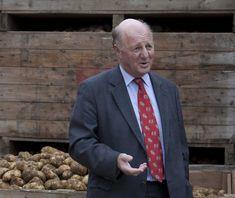
A major new government study that claims Britian’s food system must change in order to keep prices affordable was announced by farming minister Jim Paice this week.
The Green Food Project’s (GFP) first report outlines how the industry must use less energy and water in food production whilst increasing crop yields, and introducing more innovative technology.
Paice said: “We’ve got to become more sustainable; we’re not talking about setting Soviet-style targets but an overall approach to which the whole food chain pulls together.”
This is the first time the government has brought together representatives of farmers, manufacturers, retailers, caterers and scientists to work out how the UK should face the demands of producing more food whilst maintaining environmental standards.
The NFU says the GFP is crucial for the future of UK agriculture. NFU president Peter Kendall, who sat on the steering group, said: “Stimulating investment is critical if Defra is to consider how it can better support a more competitive, resilient industry.
“A step that government could take quickly is to overhaul the capital allowances to create more generous incentives for farmers to invest in new buildings, water lagoons and slurry stores.”
Fellow GFP member the Agriculture and Horticulture Development Board (AHDB) has also given its backing.
“We’re fully behind this report’s strong focus on research, knowledge exchange and improving on-farm skills as the chief thrust to securing greater productivity with greater protection of the environment,” said AHDB chair John Godfrey.
However, The Food Ethics Council questions whether the GFP’s focus on food production is perhaps too narrow. Executive director Sue Dibb explained: “What’s clear is that a focus on food production alone isn’t enough.
"What we’re eating, how much we waste, how we feed people fairly and rising population concerns all need to be part of the picture too; business as usual - even with a green tinge - is not the answer.”
The government’s Foresight report into food security, published in January 2011, estimated that food production will need to increase by 70 per cent with the world's population set to increase to nine billion by 2050.
Paice concluded: “Britain already punches above its weight, but we’re a small island with limited space, so the food industry has got to show leadership and play to its strengths more efficiently.”